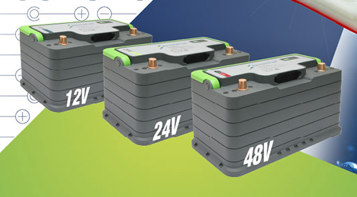Are Marine Batteries Lithium?

For generations, lead-acid batteries were the mainstay of boating worldwide. They faithfully started engines and powered onboard electronics. But in modern-day years, a modern-day contender has emerged: lithium marine batteries. These modern electricity assets offer a great opportunity. They boast benefits in weight, lifespan, and overall performance. So, are lithium marine batteries the wave of the future? Let’s dive into the world of marine batteries. We’ll find out the key differences between lead-acid and lithium technology.
Lead-Acid Batteries: The Reliable Workhorse
For many years, lead-acid batteries have been top-notch in the marine industry due to their affordability and easy-to-find replacements. They feature a chemical reaction between lead plates and sulfuric acid, which produces an electric current. While lead-acid batteries are dependable and comparatively smooth to hold, they have drawbacks.
Weight: Lead-acid batteries are notoriously heavy due to the lead plate interior. This extra weight can hurt a supply’s normal performance, and it’s a big issue on smaller vessels.
Lead-acid batteries typically last 300-500 charge cycles before needing to be replaced. Frequent deep discharges can appreciably shorten this lifespan.
Lead-acid batteries need periodic maintenance. This involves checking and topping up the electrolyte levels. This can be inconvenient and time-consuming for boat owners.
Slower Charging: Lead-acid batteries take longer to recharge compared to lithium-ion alternatives.
Lithium Marine Batteries: A Powerful Upgrade
Lithium marine batteries constitute a huge step forward in marine battery technology. They lease lithium-ion cells, supplying a plethora of advantages over lead-acid batteries.
Lithium marine batteries are much lighter than their lead-acid counterparts. Sometimes, by as much as 70%. This weight loss can improve a supply’s normal performance. It also fuels modern, basic performance and control.
Lithium marine batteries last much longer. They often last four times longer than lead-acid batteries. They can resist deeper discharges and provide as a bargain as 5,000 price cycles.
Maintenance-Free: Unlike lead-acid batteries, lithium marine batteries require minimal protection. There’s no want to check electrolyte tiers, making them a hassle-free choice.
Faster Charging: Lithium marine batteries can be charged much faster than lead-acid batteries. Thus, you spend less time on the dock and more time on the water.
Lithium marine batteries can discharge at higher rates and deliver similar regular discharge charges. This ensures most of the basic performance for your onboard electronics, including trolling automobiles.
Considering the Switch to Lithium Marine Batteries
Lithium marine batteries provide smooth blessings. But there are some things to remember before making the switch.
Initial Cost: Lithium marine batteries usually have a higher start cost than acid batteries. However, the longer lifespan and reduced protection requirements can offset the initial funding.
Boats may also need changes to their charging systems. This is for their lithium batteries at home. Searching for advice from a licensed technician is crucial to ensure compatibility.
Safety: Lithium batteries require specific handling strategies for the greatest useful protection. Understanding proper charging protocols and garage hints is crucial.
Choosing the right lithium marine battery is crucial. It ensures a smooth and fun boating trip.
If you want to switch to lithium marine batteries, consider many factors. This is when picking the right battery.
Battery Capacity: Choose a battery with enough amp-hours. It should satisfy your boat’s device’s power needs. Consider your boat’s size, the electronics you use, and your usual sports.
Voltage: Most marine electric systems run on 12 volts. But, large boats can use 24-volt systems. Ensure the battery voltage fits your device’s requirements.
The Continuous Discharge Rate (CDR) is the non-stop discharge rate. It shows how much current the battery can deliver now. Choose a battery with a CDR that meets or exceeds the max draw of your boat’s device.
Choose real manufacturers. They are known for their top-notch reliability in the lithium marine battery market.
The Future of Marine Batteries
Marine batteries are trending toward the lithium era. Lithium battery production is getting more beautiful. Costs are becoming more competitive. They will become the top choice for boat owners. The owners care about good performance, comfort, and long-term value. Lead-acid batteries will likely stay a preference for some boaters. But, lithium marine batteries are a strong, light, and low-maintenance solution for boating.
Summary:
In short, lithium marine batteries are not just a fad. They are a big advance in marine battery tech. By cautiously thinking about your dreams and weighing the specialists and cons.



